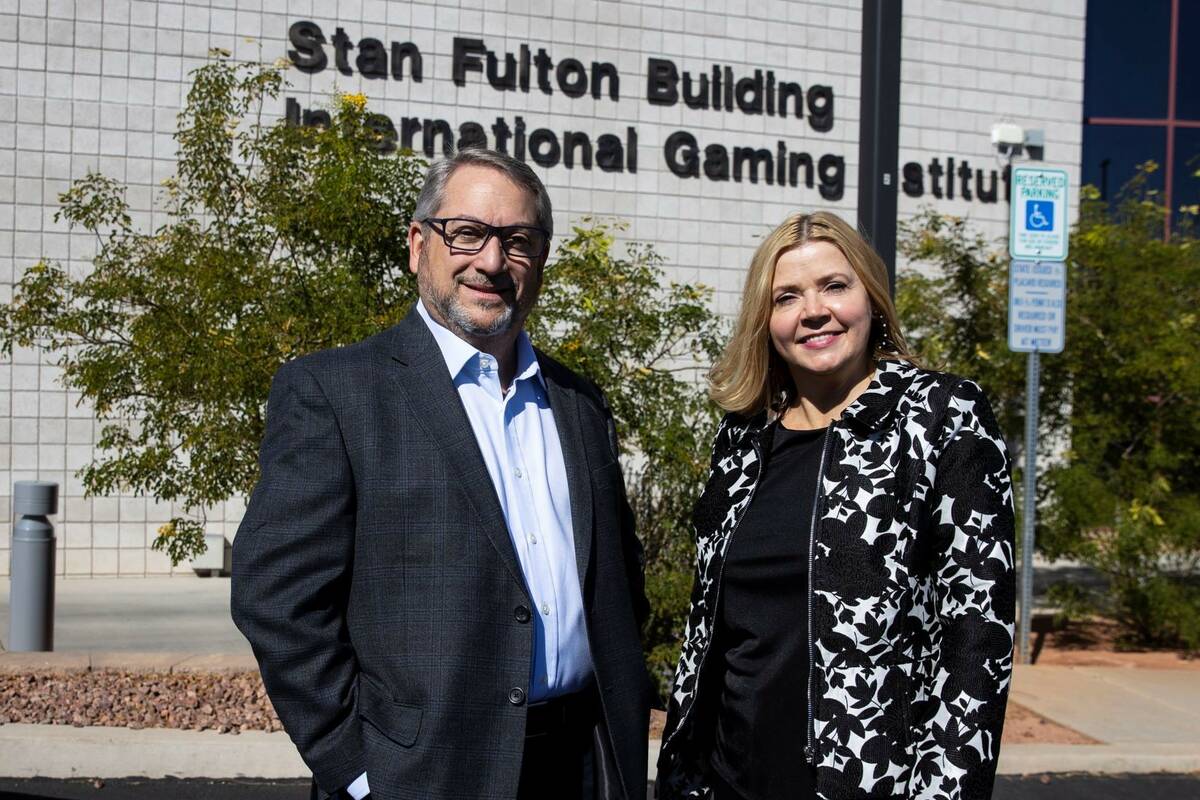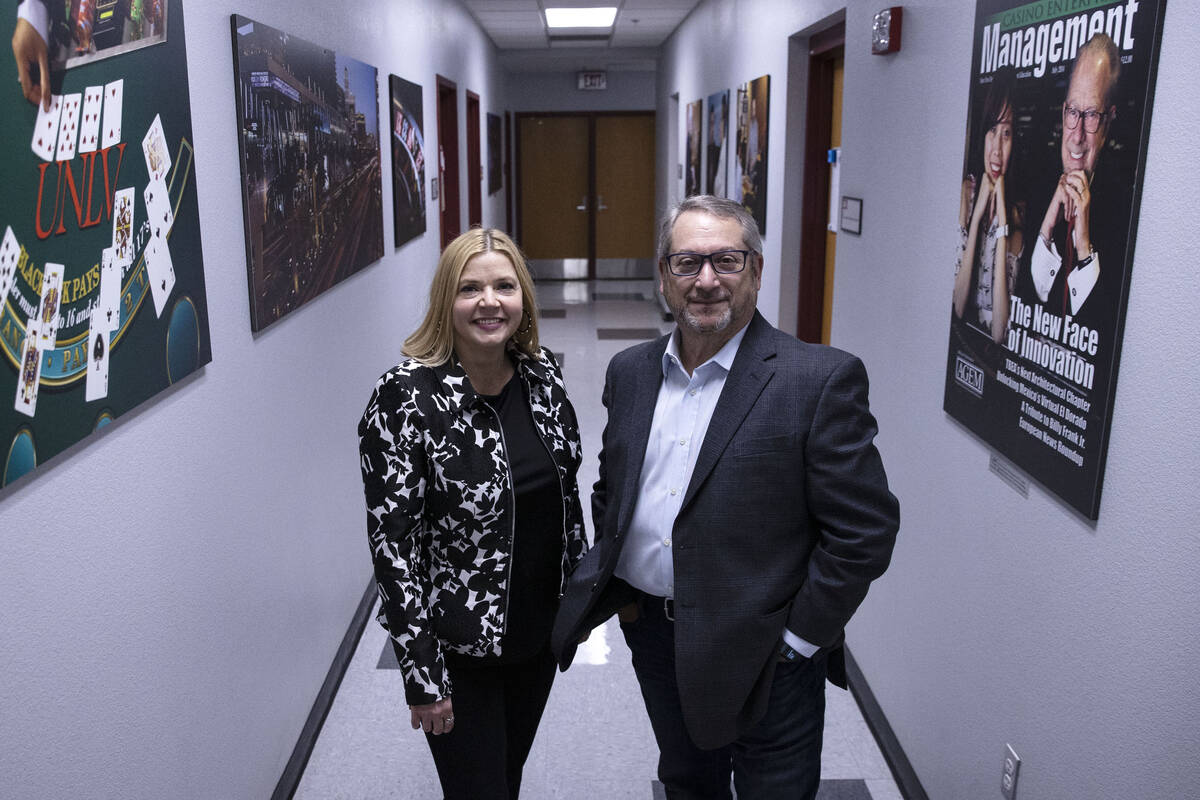UNLV institute taking a deep dive into responsible gaming
Researchers at UNLV’s International Gaming Institute are working to launch a new initiative exploring responsible gambling.
The initiative’s founders hope to better define the lines between safe and unsafe gambling, identify potential policy gaps and apply their research to real-world settings.
The program is spearheaded by former Caesars Entertainment Inc. executive Jennifer Shatley, who created the company’s responsible gaming program and is now a doctoral student at UNLV.
The International Gaming Institute’s multidisciplinary team of gaming industry experts and academics combine to form what Shatley called “the world’s first truly applied academic center dedicated to problem and responsible gambling.” She and fellow initiative member Alan Feldman, who previously oversaw MGM Resorts International’s responsible gaming program, have more than a half-century of gaming operator experience between them.
Different approach
There is limited research on responsible gambling habits, and what research does exist mostly focuses on problem gambling, she said.
“From an operator perspective, that’s not very helpful,” Shatley said. “What is helpful is (asking), ‘How do you keep a sustainable customer base? How do you implement responsible gaming in order not to have or to mitigate problem gambling?’”
The team wants to research betting and gambling from a holistic view — including psychology, law, sociology and business — and then lean on its industry expertise to provide practical solutions for health and public policymakers, gaming operators, manufacturers, clinicians and the gaming industry at large.
“I think there’s an appetite for that,” Shatley said, “but you want to be able to do things that are evidence based, that are proven to be effective, and that’s what we’re trying to provide.”
Cashless wagering to be studied
One of the first research fields will be cashless wagering, said Feldman, a responsible gaming fellow at the Gaming Institute and a member of the initiative. He said cashless wagering accounts’ and their connection with casino accounts could potentially offer insight into a player’s financial picture and gambling patterns.
“As we get into it further, how does that look from a disordered gambling perspective?” said Feldman, a fellow at the International Gaming Institute. “And is that any different than we would see (from) the population that isn’t using cashless wagering?”
Spending or funding a cashless betting account may look simple to the player, but funding an account often involves a complex web of six-to-eight transactions and/or companies, Feldman said. The goal would be to find potential player protection pitfalls and address them.
Donations sought for launch
The initiative will rely on donations for funding, and its launch depends on additional funding, Shatley said.
The Entain Foundation U.S. is the project’s first donor, pledging $20,000 a month for at least one year, “very likely much longer” to help the initiative get off the ground, said Martin Lycka, Entain vice president for American regulatory affairs and responsible gambling and an Entain Foundation U.S. trustee.
Entain this summer launched a mobile app for educating and promoting responsible gambling. About five percent of U.S. adults are vulnerable to gambling addiction, and one or two percent of adults suffer gambling addiction, Lycka said. Both the Entain Foundation and the UNLV initiative hope to identify prevention methods so players never cross the line from entertainment to addiction.
‘It can’t just be window dressing’
“For the purposes of long-term sustainability of this industry, we need to do everything in our power to make sure that our customers are healthy and happy,” Lycka said.
Another research area would be best practices for training employees to incorporate education into their customer service and encourage responsible gaming at casinos, Shatley said. Many gaming operators implement responsible gambling programs that are legal minimums and nothing more, she added.
“It can’t just be window dressing,” Feldman said. “It really necessarily involves cultural change within the organization.”
Contact Mike Shoro at mshoro@reviewjournal.com. Follow @mike_shoro on Twitter.
























